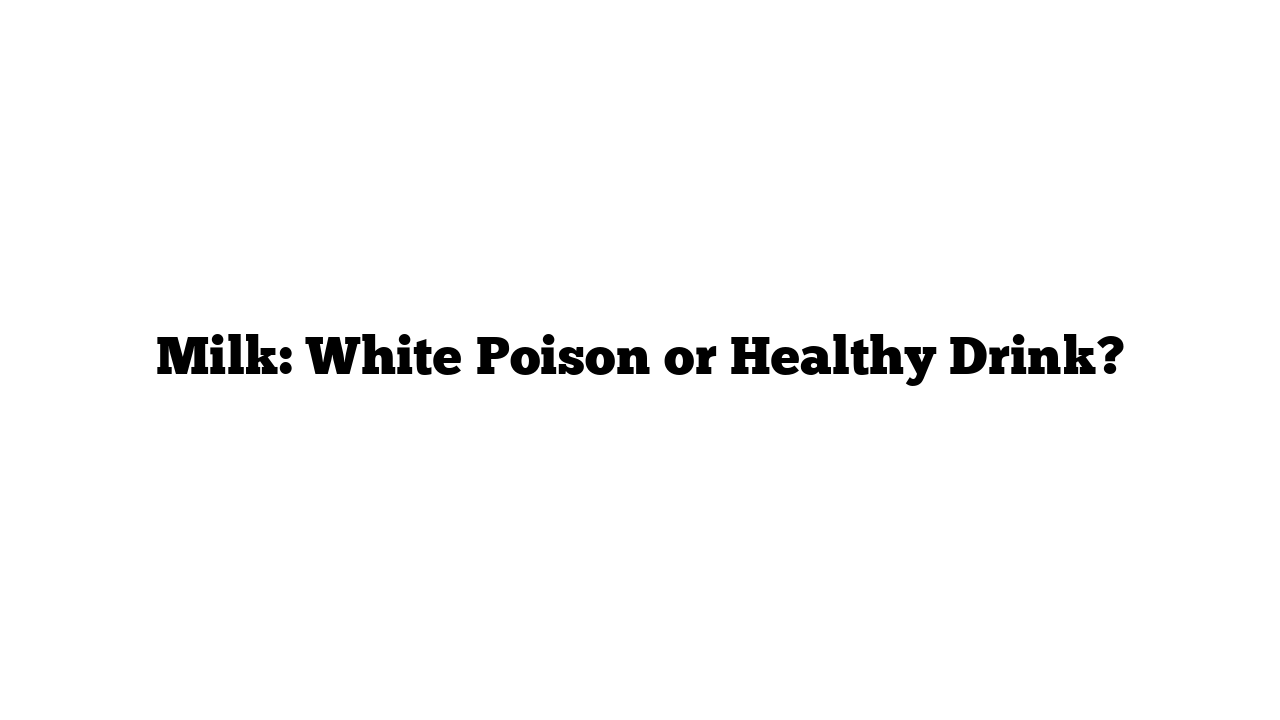Over the last decade, milk has become a topic of heated debate. Some say it’s essential for strong bones and overall health, while others warn of its potential dangers, claiming it can lead to cancer and even early death. So, who’s right? And why do we continue to drink it?
The Role of Milk in Our Diet
Milk is the cornerstone of every mammal’s diet right after birth. It provides essential nutrients for our growing bodies, packed with fat, vitamins, minerals, and lactose—milk sugar. For a limited time, it even contains antibodies and proteins to protect us from infections and help regulate our immune system. But producing milk is a significant effort for mothers.
As we grow, we typically stop drinking our mother’s milk and switch to solid foods. This shift has been our norm for thousands of years—until about 11,000 years ago, when humans settled in agricultural communities. They domesticated dairy animals like goats, sheep, and cattle, learning to transform otherwise inedible plants into nutritious food. This adaptation proved vital for survival, especially in tough times.
Groups with access to milk had a survival advantage, which led to changes in the genes of those communities. This evolution involves lactase, a specialized enzyme that helps break down lactose. While babies have plenty of lactase, its production decreases as we age. Globally, around 65% of people lose this ability, with some regions seeing lactose intolerance rates as high as 90%.
The Controversy Surrounding Milk
Given its historical importance, why is milk so controversial today? The claims against milk are numerous, ranging from brittle bones and cancer to cardiovascular diseases, allergies, and intolerances. But how credible are these claims?
Some older studies hinted at a connection between milk consumption and a higher risk of breast, colon, and prostate cancer. However, recent meta-analyses found no significant link. In fact, calcium in milk might even protect against colon cancer, though it’s unclear if milk specifically contributes to this effect. Notably, only studies on prostate cancer suggest increased risks for those drinking more than 1.25 liters of milk daily, and even these findings are inconsistent.
When it comes to heart disease and overall mortality, research indicates no clear connection between milk and these risks. Some studies even suggest that dairy consumption may correlate with lower blood pressure, but the evidence remains inconclusive.
Nutritional Benefits and Concerns
Now, what about milk’s impact on our bones? Studies generally show no significant positive or negative effects for adults. Most concerns center around the presence of harmful substances in milk, like pesticides or hormones. While hormones are present, they exist in minuscule amounts—so little that you’d need to consume about 5,000 liters of milk to match the dosage from a hormonal pill. Plus, regulations ensure that harmful levels of pesticides and antibiotics aren’t present in commercially sold milk.
However, allergies and lactose intolerance are real concerns. For instance, skim milk has been linked to a 24% increase in acne rates. Milk allergies are more common in children, with about one in 18 affected in Germany. Thankfully, many children outgrow these allergies as they age.
Is Milk Healthy?
So, is milk healthy? Whether from cows, goats, or camels, milk is nutrient-dense and offers essential macronutrients and micronutrients. In regions where calories are scarce, milk can significantly improve health and lower child mortality rates. For those in developed countries, it’s generally safe if you don’t have allergies or intolerances.
Especially for kids, milk is a great source of calcium, and for vegetarians, it provides vital B vitamins, including B12. However, it’s important to note that milk isn’t the only source of these nutrients, and you definitely shouldn’t rely on it for hydration.
Milk production, however, does have a notable environmental impact. About 33% of cropland is used to feed dairy cattle, contributing to approximately 3% of global greenhouse gas emissions—more than all airplanes combined. Factory farming practices often lead to significant animal suffering, with cows enduring repeated pregnancies and separation from their young.
Exploring Alternatives
What about plant-based milk? In terms of protein and nutritional value, only soy milk rivals cow’s milk; others require fortification to match its vitamin and calcium levels. Several startups are even producing lab-grown milk, which mimics dairy milk through fermentation with genetically modified bacteria. This innovation may solve the challenges of taste and texture that plant-based alternatives often face.
On the environmental front, many milk alternatives use less energy, land, and water, resulting in a lower ecological footprint compared to dairy milk. When choosing alternatives, opt for regional options to minimize negative impacts.
Conclusion
In conclusion, milk is a complex topic. While it’s not harmful for the majority and is vital for many globally, it does have environmental implications and ethical concerns. It’s up to us as a society to consider these facts and decide how we want to move forward.
